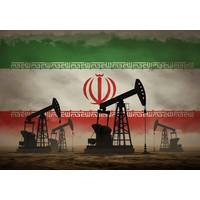Analysts at Moscow-based Sberbank CIB believe that the most likely outcome of a meeting of leading global oil producers in Doha on Sunday is a partial output freeze that supports a limited rise in oil prices.
The largest producers, including Saudi Arabia and Russia, are scheduled to meet to finalise a deal reached in February to freeze oil output at January levels aiming to bolster oil prices.
However, Iran, whose oil production was restricted by international sanctions imposed over its nuclear programme, is unlikely to join the freeze as it aims to raise its output to its pre-sanctions level.
Iran's resistance to a freeze is likely to "be taken by the doubters as proof that the lengthy pre-summit negotiations failed to get the message across to Iran," Sberbank CIB analysts wrote in a note to clients.
"Nevertheless, a deal like this could still result in initial relief," they said. "Our concern is that over time the deal would run the risk of disintegrating as countries face a reduced incentive to stick to it."
"However, we doubt (oil prices) will reach much higher and would consider taking profit at this level or a little above."
They said that early optimism or relief over any deal could see Brent crude oil futures test $45 per barrel.
Brent was trading at $44.17 at 1010 GMT on Wednesday.
(Reporting by Vladimir Soldatkin; editing by Katya Golubkova and Jason Neely)



